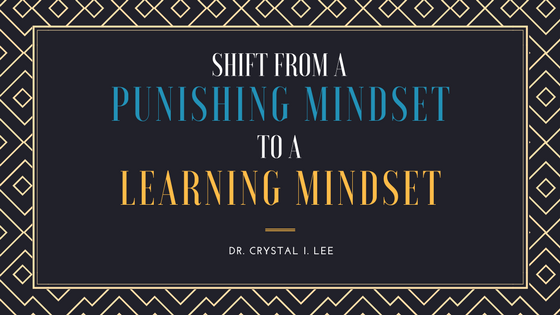
I’m throwing out a challenge to all parents: the next time your child makes a mistake or a poor choice, instead of punishing your child, try implementing a logical consequence.
You might look at my challenge and think, “this is just a matter of semantics” (and it kind of is because, in psychology, a punishment is a type of consequence). What I’m really trying to do is shift your mindset from one of frustration, anger, and disappointment to a mindset of learning and growth.
What are Logical Consequences?
Logical consequences are about keeping your child accountable. They show that behavior is a choice, and consequences are a direct result of choices made. Logical consequences keep the situation a neutral learning experience. It’s a chance to show your child the effects of his actions and give your child the opportunity to learn from his mistakes.
Logical consequences are great learning tools because they directly relate to the mistake or poor choice made. Alternatively, punishment is often a result of parents’ negative feelings in the moment and the desire to control the choices your child makes. Punishments also tend not to directly link to the child’s behavior or situation at hand.
By giving your child logical consequences, you’re showing him what to expect in life if he makes unwise choices. That is the purpose of the consequence, not to control what choices your child makes. Because, ultimately, your child’s behavior is her choice and there is nothing you can do about it except continue to keep her accountable and show her the realistic results of her actions.
Examples of Logical Consequences
Let’s look at some real-life examples to help clarify the concept of logical consequences.
Julia is a high school junior who lived at home with her parents. She was given permission to hang out with her friends after school. Her parents asked her to come home by 10:30 pm. Instead, Julia came back around midnight.
Punishment: Julia’s parents yelled at her when she came home. She was grounded for two weeks.
Logical Consequence: Julia’s parents explained to her that coming home after the approved time was not okay. As a result, the next time she went out to see her friends, she would need to come back by 9 pm instead of 10:30 pm. If she did this successfully, then the next time she could stay out until her normal 10:30 pm curfew.
Edgar is a young adult who lives in an apartment. His parents pay for it because he has a low paying job. His parents gave him a credit card for emergencies only. One month, they found out he charged over $1,000 on the credit card to pay for video games, take out, and concert tickets.
Punishment: Edgar’s parents lectured him on fiscal responsibility. They permanently took the credit card from him. He also had to pay his parents back for the money he spent.
Logical Consequence: Edgar’s parents taught him how to balance a budget. After looking at Edgar’s budget together, it was decided that Edgar would take $50 out of each of his paychecks until he paid back the $1,000. They took away the credit card until he paid them back.
Daniela is a young adult who lives at home with her parents. She had a history of shoplifting but had never been caught. One afternoon, her mother took Daniela out shopping, and her mother saw Daniela put some jewelry in her purse.
Punishment: Her mother made Daniela put the jewelry back at the store. When they got in the car, her mother gave her the silent treatment. The next day, her parents took away Daniela’s favorite possessions and donated them.
Logical Consequence: Daniela’s mother allowed the store security guard to catch Daniela in the act of stealing. She left Daniela in the custody of the store and picked her up at the police station later. Daniela’s mother talked with Daniela about the seriousness of her actions. She also asked Daniela what compelled her to steal the jewelry. Daniela explained that she felt like she didn’t have any spending money of her own. They worked out an allowance plan where Daniela earns money by volunteering her time at her mother’s office.
Still unclear how to create logical consequences for your child’s behavior? Contact Dr. Crystal I. Lee for a free 20 minute consultation.
Please read more about parenting an emerging adult here.



